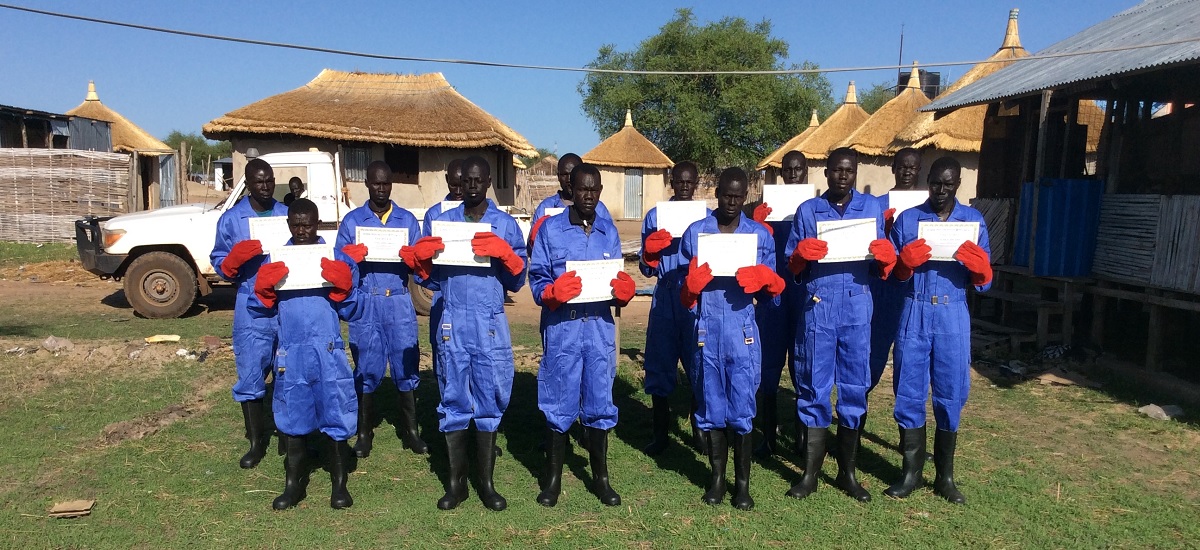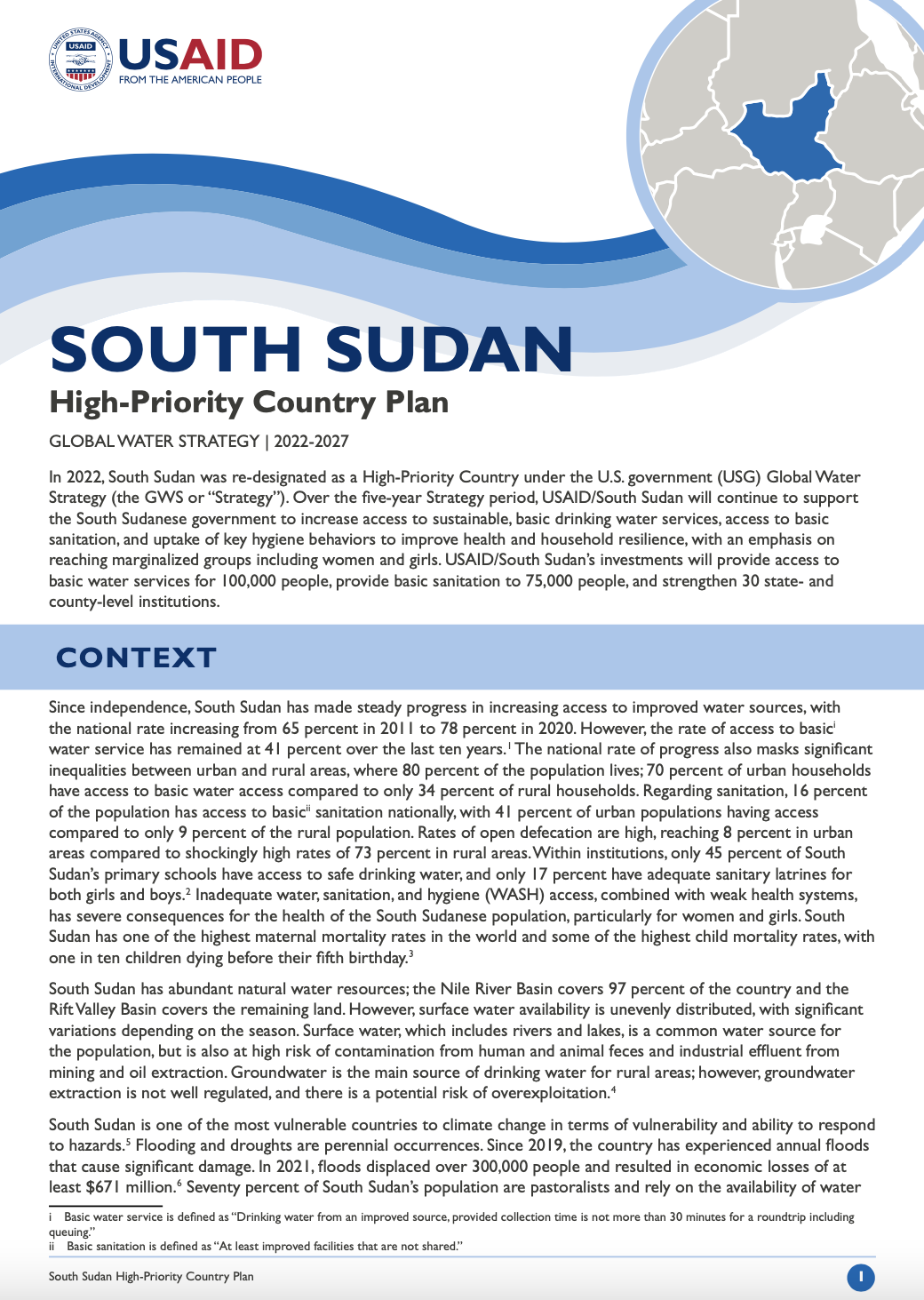
South Sudan
Overview
In 2022, South Sudan was re-designated as a High-Priority Country. USAID is working with partners in South Sudan to:
- Provide access to basic drinking water services for 100,000 people
- Provide basic sanitation for 75,000 people
- Strengthen 30 state- and country-level institutions



